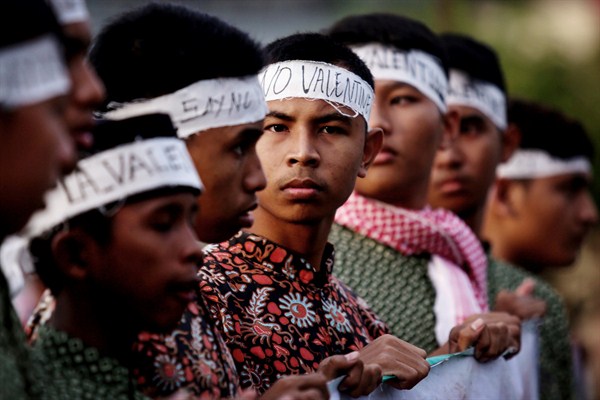Editor's Note: This article is part of an ongoing series about religious minorities in various countries around the world.
Last month, an assailant with a sword attacked a church during services in the Indonesian city of Yogyakarta, injuring four worshippers, including a priest. The attack appears to be the latest sign of growing religious intolerance in the world’s most populous Muslim-majority country, which has seen a rise in religious conservatism and flashes of extremism in recent years. In an email interview, Kikue Hamayotsu, an associate professor of political science at Northern Illinois University and faculty associate at the Center for Southeast Asian Studies, discusses the evolving role of religion, and especially Islam, in Indonesian politics.
WPR: How influential is Islam in Indonesian politics, and how has it affected the participation of religious minorities in the political system?

